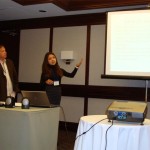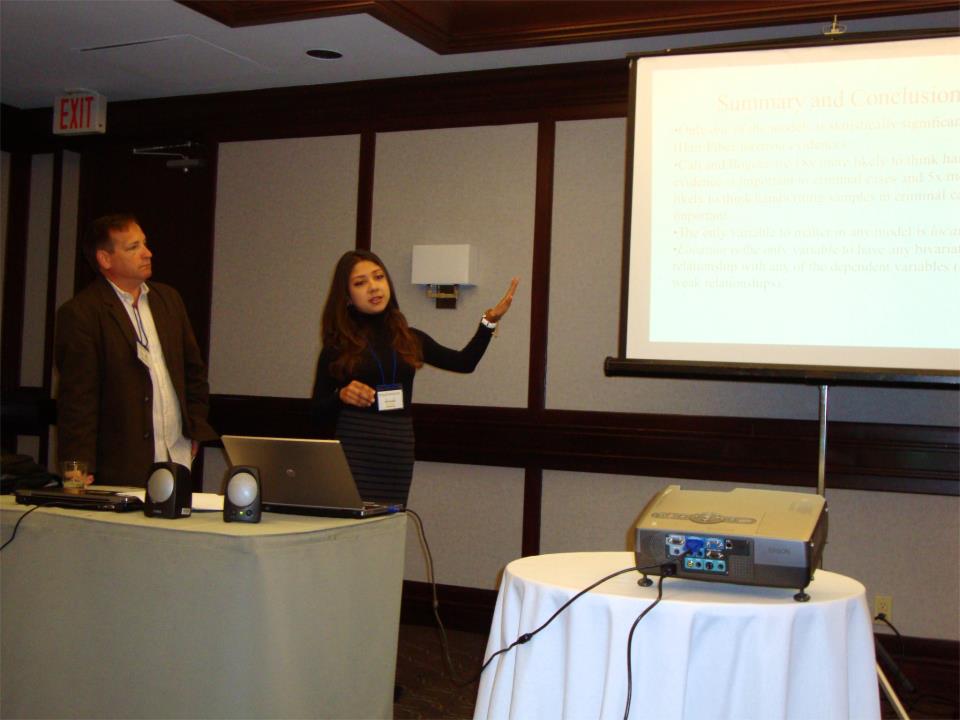One of the objectives of the SEEDS’ Guidance blog is to introduce students and alumni to various internships and other opportunities that encourage them to do well academically and also seize opportunities to cultivate personal and career potential. What better way to get that experience first-hand than through one of our scholar alumni?
 This week’s post is courtesy of Danny Santamaria. Danny was a member of the first graduating class from SEEDS’ College Preparatory Program in 2011. She is currently a junior at the University of Tampa, where she is studying criminology. As a freshman, she was determined to make a name for herself on campus by obtaining science related opportunities that would serve as the foundation for work within graduate school. In the first of this two part series, Danny will discuss her experience in obtaining an undergraduate research assistant position and provide tips on how to build positive working relationships with your professors.
This week’s post is courtesy of Danny Santamaria. Danny was a member of the first graduating class from SEEDS’ College Preparatory Program in 2011. She is currently a junior at the University of Tampa, where she is studying criminology. As a freshman, she was determined to make a name for herself on campus by obtaining science related opportunities that would serve as the foundation for work within graduate school. In the first of this two part series, Danny will discuss her experience in obtaining an undergraduate research assistant position and provide tips on how to build positive working relationships with your professors.
Getting Involved in Research as an Undergraduate
By: Danny Santamaria (CPP ‘11, University of Tampa ‘15)
It is never too early to think about getting involved in undergraduate research. Research offers undergraduate students a chance to expand their knowledge while gaining valuable real world experience in a research setting at most, if not all, universities across the country. Hands-on experience is an invaluable part of a student’s college career and it has been that way for me as a student at the University of Tampa. Since the second semester of my freshman year, I have been involved in criminology research with Dr. Anthony LaRose, an associate professor in the department of Government and World Affairs.
Undergraduate research gives you the opportunity to strive toward impressive accomplishments, build a research resume, and ultimately discover your own unique passions about whatever subject you decide to pursue. Some of the recommendations below reflect my experience in the social sciences, but many of these ideas also apply to the humanities, arts, and sciences. Here are some general principles to keep in mind.
Persistence pays off! If you persist, you will get that research job. The strategies I describe below are steps that persistent students have taken across many research fields. Of course, no single strategy works all the time. Expect some rejections, but take them in stride. Realize that some researchers have already made commitments to other undergraduates or are planning to be on sabbatical or away for the summer. Others are not yet sure what their summer research plans will call for. Don’t take any negative response as a rejection. Just keep on using the strategies described here, or create new ones for yourself.
Be creative and proactive. The advice given here is far from complete, so use your ingenuity to generate your own ideas. Don’t assume that a professor will come to you. You must go to them. The more proactive and creative you are, the easier it is to convince professors that you will also be an enthusiastic participant in their research projects. Research is often an open-ended questioning and problem-solving process, just like finding a research project in the first place. You don’t have to know everything about a subject when you make contact with a professor. That is why you are a student. Show that you are trying and that you are going above and beyond to find out about the research of a professor.
Start early. Why not start your quest during the first or second week of school? While everyone else is trying to figure out the best eating spots on campus, you will be the only freshman wandering into the offices of prospective mentors. Even if it is too late for you to take that approach, starting early is still important. For some federal and privately-funded research opportunities, the deadlines give you precious little time to learn about a subject. So, the sooner you start looking for research, the better. In many disciplines, there is no reason to not begin researching, even if it not fully collaborative, before you have taken advanced coursework in that area. In fact, younger students offer faculty researchers the potential advantage of working with them several years in a row, which saves them training time.
You CAN do research. Many students may not believe in themselves enough to think that they would be capable researchers in a lab. You could be one of those students. The fact is, research is a great equalizer. Many students who start out with transcripts that are far from stellar succeed famously. And it is probably because the research environment is totally different from that of the classroom. The result is an improved self-esteem, which is then frequently followed by improved academic success. Whether you are doing fair or extremely well academically, a trip to the Dean’s Office can help you to gain some perspective if you have doubts about your own research abilities.
“Just Do It.” While doubts and reservations are understandable, it is best to either work to eliminate those doubts or to act as if you have the potential that we know you have and “just do it.” Just ask your professor about research opportunities in his or her area of research. Just make that phone call or send that email to start your search.
Stay tuned for Part Two of Danny’s guest blog post next week which will discuss ways to learn about research opportunities at your school. Questions for Danny? Email her at: [email protected].
